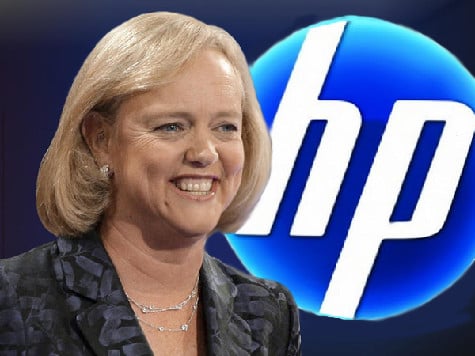HP's Profits Plunge as CEO Pleads For Time
The hard drive shortage, Oracle's assault on Itanium, and highly competitive scenarios in its ink-and-printer business combined to kneecap HP's earnings this last quarter. The company's net revenue fell seven percent, to $30 billion, while overall margins dropped to just 6.8 percent -- a decline of 3.7 percentage points. The steep decline in revenue was driven by a number of factors. Personal computing sales were down 15% year-on-year, imaging sales fell 7%, and enterprise server product revenue was down 10%.

On the upside, HP's services business, software revenue, and finance division all grew profits over the same period -- but not enough to offset these declines.
The company's CEO, Meg Whitman, did an excellent job of fielding a difficult quarter and came off as very much aware of the challenges facing HP. 2011 was a debacle for the company, from its entry and abrupt exit into the tablet market, decision to replace Lee Apotheker as CEO just weeks after he announced his plan to shake up the company, and the ongoing Oracle lawsuit. Investors hit Whitman with tough questions related to her plans for the company's future, but she responded ably.

Apotheker had something of a point when he talked about exiting the PC business due to low margins; HP's 5.2% profit margin is actually praised during the call as being an improvement over past years. Whitman notes that she chose to emphasize profitability over chasing customers in the midst of the hard drive shortage, but the revenue figures make it clear that HP's ability to absorb this sort of shock by swallowing the price hit is limited.
Whitman noted that HP is excited about Windows 8, has gotten good reviews on its first ultra-thin products, and believes the company is "well positioned for the holiday on Windows 8 x86." By the time the new OS arrives, the hard drive shortage should be a distant memory, but Oracle's Itanium lawsuit may prove an anchor around the company's business through 2012.

On the upside, HP's services business, software revenue, and finance division all grew profits over the same period -- but not enough to offset these declines.
The company's CEO, Meg Whitman, did an excellent job of fielding a difficult quarter and came off as very much aware of the challenges facing HP. 2011 was a debacle for the company, from its entry and abrupt exit into the tablet market, decision to replace Lee Apotheker as CEO just weeks after he announced his plan to shake up the company, and the ongoing Oracle lawsuit. Investors hit Whitman with tough questions related to her plans for the company's future, but she responded ably.
The formula for success here is not having revenue declines of negative 7% to 8% in constant currency. So the first step with stabilization is stop the decline. The second is then we have to start growing revenues again, and the only way that we know how to do that is you've actually got to gain share in virtually every single market.A glance at the company's overall operating margins, however, underscores the difficulty of what Whitman is proposing.
What we cannot do is keep our current level of costs and just layer investments up on top of that. We've got to streamline our processes, we've got to optimize our supply chain, we've got to reduce SKUs, we've got to rationalize our go-to-market so that we can save money in the OpEx line so that we can then reinvest in the -- growing product lines, we can invest in our fast-growth businesses and we can invest in innovation. So what never works in business is, "Let's keep our cost structure the same and just layer investment on top of that when we're in a situation in which we find ourselves.

Apotheker had something of a point when he talked about exiting the PC business due to low margins; HP's 5.2% profit margin is actually praised during the call as being an improvement over past years. Whitman notes that she chose to emphasize profitability over chasing customers in the midst of the hard drive shortage, but the revenue figures make it clear that HP's ability to absorb this sort of shock by swallowing the price hit is limited.
Whitman noted that HP is excited about Windows 8, has gotten good reviews on its first ultra-thin products, and believes the company is "well positioned for the holiday on Windows 8 x86." By the time the new OS arrives, the hard drive shortage should be a distant memory, but Oracle's Itanium lawsuit may prove an anchor around the company's business through 2012.

